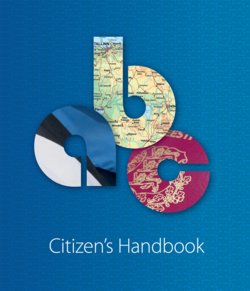Читать книгу Citizen’s Handbook - Mart Jagomägi - Страница 10
На сайте Литреса книга снята с продажи.
PRESIDENT OF THE REPUBLIC
ОглавлениеThe President is the Head of State of Estonia. Generally, the Head of State has limited political power, but a representational function and the role of an arbiter, i.e. the balancer of powers.
The President must be independent both professionally and also politically from political parties. When the President assumes office, all powers and tasks of the President of the Republic in all other elected and assigned offices shall end, and also any participation in a political party is suspended for the period of the term of office. The positions to be suspended are not determined based on whether the President receives a salary or not, but rather on the obligations of the positions, including being the member of board or member of the supervisory board of a profit organisation.
Election of the President
Nominations of candidates for President may be made from among citizens of Estonia by birth who have attained at least forty years of age. The President is elected by the Riigikogu. If no candidate is voted for by at least 68 members of the Riigikogu, an Electoral College is convened comprising members of the Riigikogu and representatives of local government councils. The Electoral College is formed only for the purposes of electing the President.
The President of the Republic is elected for a term of five years. No one may be elected to the office of the President for more than two consecutive terms.
Duties of the President
The President:
• represents the Republic of Estonia in its international relations (sharing this duty with the Prime Minister and Minister of Foreign Affairs)
• nominates the Prime Minister candidate and appoints members of the Government of the Republic
• appoints diplomatic agents of the Republic of Estonia (e.g. envoys and ambassadors) in other countries and receives the credentials of diplomatic agents accredited to Estonia
• proclaims (or refuses to proclaim) laws
• makes recommendations to the Riigikogu regarding appointments of some higher officials
• confers national awards
The President grants military ranks and has the right to grant release (or commutation of sentence) to convicted offenders.
Proclamation of laws
The President examines whether a law passed by the Riigikogu complies with the Constitution. If the President finds that everything is in order, he or she proclaims the law. The President can also refuse to proclaim the law and send it back to the Riigikogu for additional review and re-adoption. If the Riigikogu adopts the same law without amendments, the President must proclaim the law or refer it to the Supreme Court for verification of its compliance with the Constitution. If the Supreme Court finds that the law complies with the Constitution, the President proclaims the law.
As a balancing option, the President has the right to dissolve the Riigikogu and call extraordinary elections.
